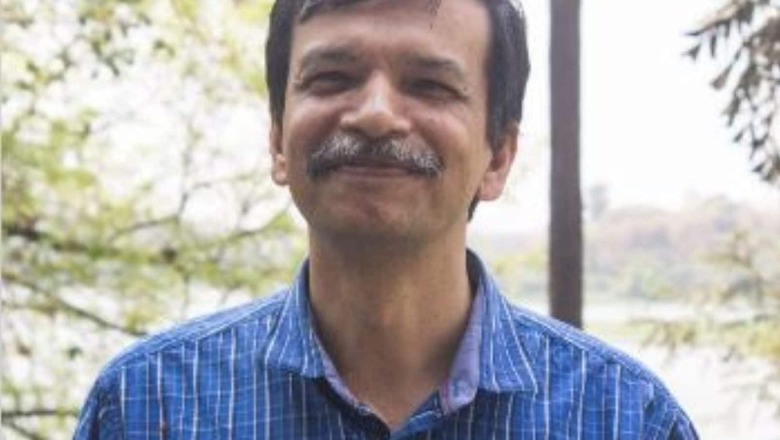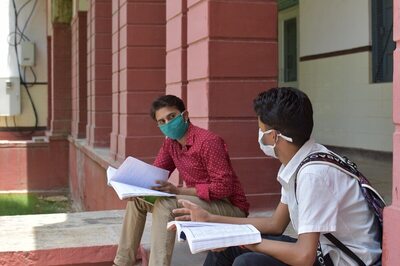
views
From offering new programmes in humanities, design and management in 2023, taking up a complete curriculum review, enhancing overall student experience, bettering societal impact, boosting campus infrastructure and innovation ecosystem to a major thrust in providing technological solutions for better healthcare services and setting up IIT Abu Dhabi by 2024, IIT-Delhi director Rangan Banerjee has his hands full.
In an interview with News18.com, Banerjee speaks at length about his vision for the institute, internationalisation and new NEP. Edited Excerpts:
You had earlier said being “multidisciplinary” is the key to a good institute. How is IIT-Delhi moving in this direction? Any new programmes on the anvil?
Over the past five years or so, we have moved from predominantly being a purely science and engineering institute to being truly multi-disciplinary with courses like humanities and social sciences, masters in economics and public policy being offered on campus.
Last year, we started a new course — Bachelors in Design — and we now plan to offer a BTech in Design from the new financial year. Also, we are planning to offer new academic programmes such as masters in humanities, which are yet to be formulated. Besides, we are also going through a complete curriculum review.
In the existing programmes, we are building multi-disciplinarity through different sets of offerings and looking at possibilities of offering minors. We already have a department of management studies so we are thinking of offering integrated programmes where people can study both BTech and MBA. This is yet to be worked out. So, multi-disciplinarity is the key to holistic education where people can get an all-round perspective, apart from specialising.
What is your vision for the institute over the next four years as its head? Any reforms you plan to bring?
The challenge for us is the young undergraduates — to excite them and get them involved in their core discipline and sustain it through the course. This is a challenge faced in all engineering and science institutes across the world. We are looking at ways in which we can provide opportunities for our students for ‘learning by doing’, to create possibilities of immersion looking at real-life problems.
We have the Unnat Bharat Abhiyan, which IIT-Delhi leads, where we are connected with over 16,000 villages and have opportunities for people to do internships by spending two months in the village and identifying problems. We also want to see that we encourage and enhance the possibilities for students to turn their ideas of entrepreneurship and incubation into real start-ups. For this, we created a scheme with alumni entrepreneurs to help fund start-ups of final-year students who are working on such projects. So, we want to see that we enhance the overall student experience.
Also, even though we have one of the best innovation ecosystems in the country, there is still a lot more that could be done. We also plan to reimagine the infrastructure as we are a 60-year-old institute. We have plans to expand our hostel capacity. Currently, we have over 12,000 students on campus while the total hostel capacity is only 7,000.
Can you elaborate on the recent IIT-Delhi collaboration with AIIMS and other healthcare facilities, in terms of what it aims to achieve and how it is progressing.
We are trying to get groups of faculty together to work in different areas where we can enhance our societal impact. This synergy with AIIMS as well as the National Cancer Institute is one such step. This coming together of technology and medicine aims to plug the gaps in the healthcare services by offering better and low-cost technological solutions. We plan to make AIIMS-Jhajjar a healthcare hub with personalised medicine and digital facilities. We plan to set up an organoids facility here. There are only a few such facilities the world over.
We are also looking at technological solutions for sports performance, injury prevention and assistive technology. We have a lot of work on biomechanics, censors and monitoring. We would like to give Indian sportspersons that additional edge through technology. It is a new domain that we are going to start where we also plan to offer some post-graduate programmes. In November 2022, we made a presentation to the Haryana chief minister and he seemed to like it very much. Now, we just need the go ahead and the funding required for infrastructure and research. In the next three to four years, this will be a major thrust area.
What is your view on internationalisation of higher education with the recently released UGC regulations that allow top foreign universities to open branch campuses in India?
I would not like to comment on the regulations. However, when we say internationalisation, our priority for all kinds of collaborations is a two-way process. IIT-Delhi is helping set up an IIT in Abu Dhabi, which will start its academic programmes from 2024.
The new National Education Policy (NEP) 2020 lays emphasis on teaching in the mother tongue or home language. Engineering books have been launched in regional languages such as Marathi and Odia and will be published in other languages as well. Since IITs have students from every part of the country studying together, how do you plan to implement this?
It’s true. At IITs, we have students from every corner on the country’s map. Diversity of a class is our strength. We provide support to students and have foundational courses to help them out of any kind of language barrier. If there are translations available in regional languages for certain key textbooks, these books can help provide better support. We will ensure that no student has a problem in studying because of a language barrier.
Given the grim global economic outlook for 2023, with major tech firms on a spree of layoffs, how has the placements season been for the institute so far?
It has been reasonably good. The institute has received its highest-ever job offers in 2022-23. Till December 15, students received 1,300 job offers, including international placements. The placements will go on till May, so we are yet to see how the rest of it turns out.
Read all the Latest Education News here



















Comments
0 comment